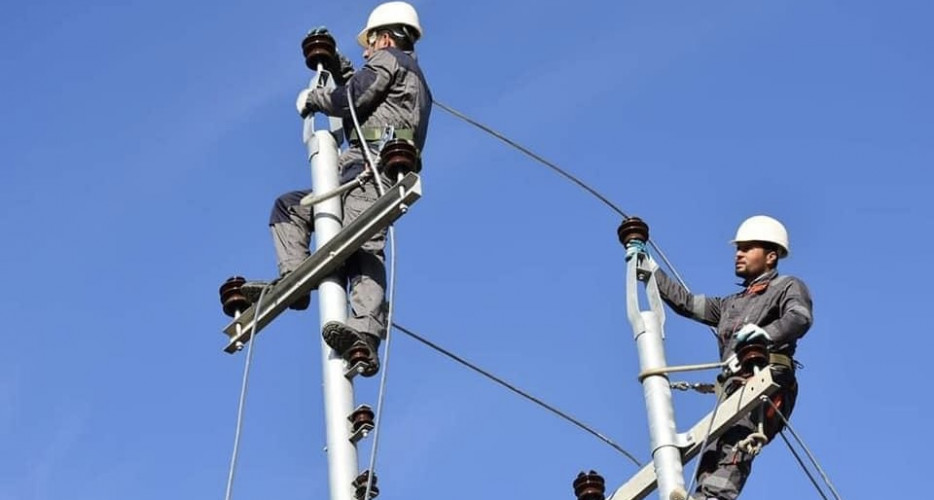KRG electricity generation, income up, but residents still rely on private generators to meet demand

PEREGRAF
According to data from the Kurdistan Regional Government's (KRG) Ministry of Electricity, electricity generation, the number of hours of public electricity available, and subscriptions have all increased by about 20% over the past four years and income for the ministry has tripled.
Nevertheless, people across the Kurdistan Region continue to rely on expensive and environmentally harmful private generators to fill the gaps when public power fails.
Comparing the state of the sector at the beginning of 2018 and the end of 2021, the ministry said that generation went up 21% from 2,683 megawatts to 3,373 megawatts and claimed that the number of average hours available went from 13 hours and 54 minutes per day to 16 hours and 57 minutes.
The number of subscribers to public electricity also increased 21%, from 1.448 million to 1.747 million.
Over the same period, income for the electricity ministry went up threefold from 286 billion Iraqi dinars ($195 million) to 825 billion Iraqi dinars ($563 million).
The Council of the Ministry of Electricity released the data on January 3 at its first meeting of 2022.
It attributed the income increase to a decision to forgive 15% of subscribers’ debt if they paid overdue bills, which improved collection.
It also said that 80 percent of the smart meter installation program was complete.
Despite these improvements, electricity remains a persistent problem in the Kurdistan Region with the number of hours of electricity increasing by just three hours per day during the four-year period covered by the data.
Those in the Region who can afford to do so use private generators to fill the gaps, especially during high demand periods in the summer and winter.
There are approximately 5,500 large-scale private generators across the Region, many of which run on environmentally harmful fuel produced by unlicensed refineries that are not subject to regulation or monitoring.
The authorities are well-aware of the issue.
Ali Hama Salih, head of the Kurdistan Parliament's Energy and Natural Resources, Commerce, and Industry Committee, told Peregraf that the fuel produced by the illicit refineries is mixed with contaminated oil and other chemicals that release dangerous toxins into the air.
Similarly, Razaq Khaylani, spokesperson for the Kurdistan Region’s Board of Environment, told Peregraf the fuel, marketed as gasoline, is of "very bad quality and a threat to the environment and health.”
Khaylani explained that generator owners use it because it is cheap.
Meanwhile, the Ministry of Electricity said it was pressing forward with its plans for the new year.
"Dozens of projects to set up stations, run power lines, and increase electricity production levels, including hydroelectricpower and solar power" will be implemented in 2022, the ministry said in a statement.
"The smart meter project has been completed by 80 percent so far and will be completed in the first half of this year. The campaign to prevent electricity violations will begin. The process of privatizing the electricity sector will be implemented this year," it added.